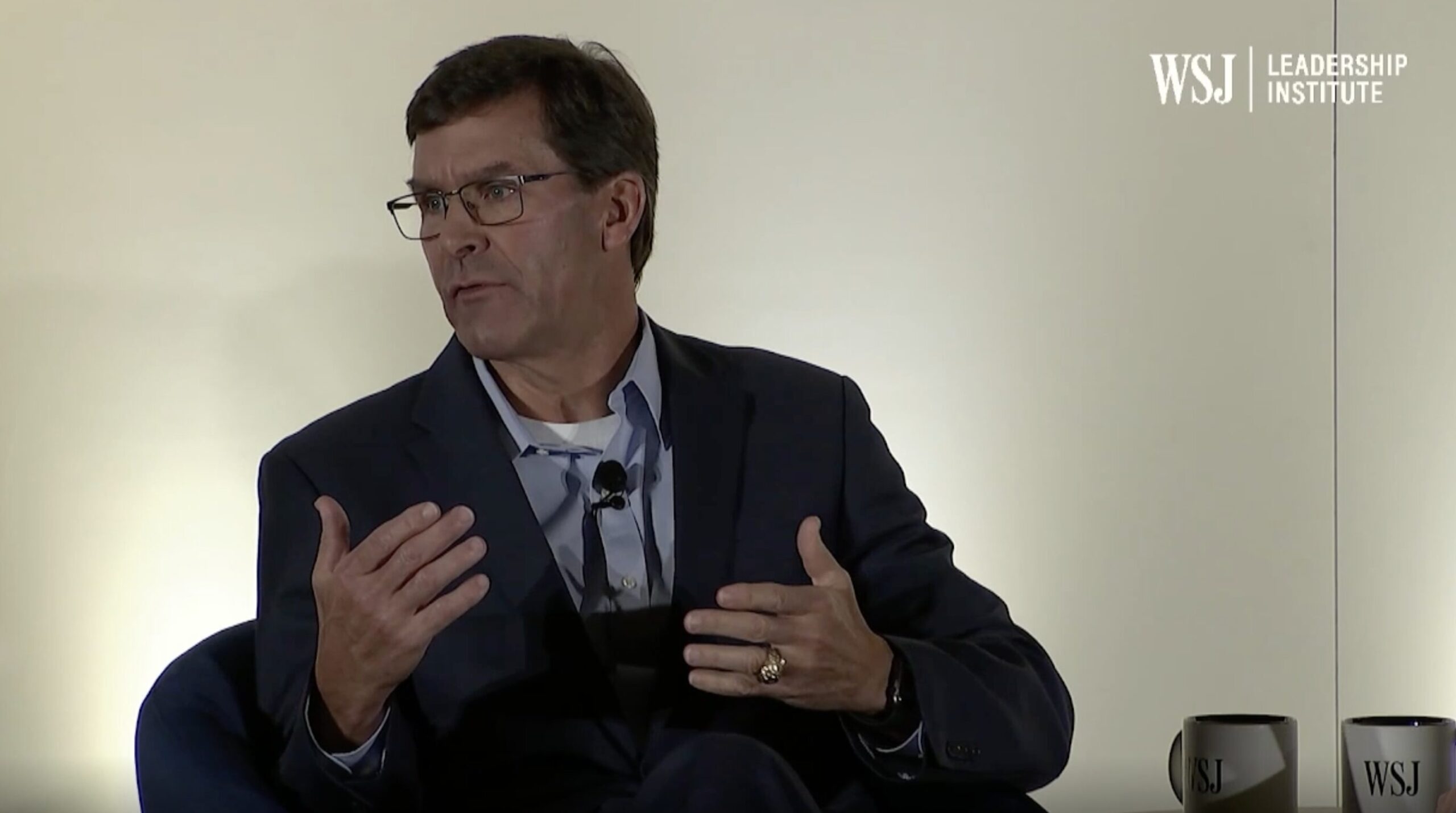
Peter Zeihan: The Semiconductor Frontier
We’ve discussed how essential semiconductors are in our increasingly technological world, so here’s an update on ASML’s new High-NA EUV lithography machines. ASML already builds…
Thought Leader: Peter Zeihan

Dear fellow China-watcher,
I’m tremendously excited to announce the launch of MacroPolo, a new initiative from the in-house think tank of the Paulson Institute at the University of Chicago.
Brought to you by a dedicated team of seasoned analysts, our aim is to decode China’s economic arrival for you across multiple dimensions.
Few events will be as defining—or disruptive—as how the Chinese economy performs and evolves over the next decade—and whether China’s leaders succeed in turning it toward a new, more sustainable growth model. But ultimately, whether attempts at reform succeed in the world’s second-largest economy will depend as much on politics and social dynamics as on macroeconomic policies and intentions.
That is why anyone with a stake in where the global economy is headed needs to grapple with the complexity of China’s evolution.
But elucidating a nuanced and balanced portrait of China’s economy, not platitudes or punditry, is becoming much more difficult.
And that is why we have created MacroPolo.
The animating idea behind our new digital platform is to create a hub for incisive, relevant, and accessible research on China’s political economy. We also examine the multifaceted economic linkages between the world’s two largest economies, the United States and China, with a particular emphasis on cross-border investment.
Take a quick tour around MacroPolo and you’ll discover not just our unique suite of existing products, such as our widely read Paulson Policy Memoranda and Investment Case Studies, but also several new bespoke products that we believe are the first of their kind.
REFORMPEDIA
The first of these is our exciting ReformPedia, where we believe you can find everything you need to know about Chinese economic reforms in a one-stop shop.
A comprehensive, interactive timeline and policy library, this dynamic product provides detailed assessments of China’s progress on the sweeping economic reform program Beijing promised, but has yet to deliver, at the 2013 Third Plenum of the Chinese Communist Party.
ReformPedia offers a detailed stock-taking of the totality of Beijing’s economic reform initiatives—and systematic assessments of how these initiatives may (or may not) be performing as intended. In other words, it is a one-stop shop that makes sense of all of the key policies and actions Beijing has pursued in conjunction with its 2013 reform commitments. The product provides a single window to assess the state of China’s economic reforms.
ReformPedia has three key features:
Interactive Timeline
This dynamic feature allows users to interact with timelines covering key economic reform areas, including a master timeline. The timeline begins in 2013 but will see continued expansion and regular updates until 2020, the officially stated completion date of the Third Plenum reform agenda.
Policy Library
A repository of hundreds of policies and measures, the library is also being continuously expanded as important new policies are announced. This feature offers an easily searchable resource for accessing primary source documents in both Chinese and English. The library supports and refers back to all content in the timeline product and also serves as a valuable reference for users seeking more detailed summaries of Chinese policies.
Analysis and Assessment
A monthly feature that will offer forward-looking analysis and assessment of the most important economic policies and developments related to reforms. For the “wonkier” user of the product, this feature offers deep dives and timely takes on the latest reform developments—areas and themes that our team believes you should keep an eye on.
FDI GATEWAY
A second exciting MacroPolo offering is our FDI Gateway, which aims to bridge the knowledge gap between Chinese investors and American states, cities, and firms.
No two American states are alike, which means that location matters for every foreign investment. So does finding the right foreign partners or firms to invest. Our FDI Gateway is a knowledge hub that helps users discover and understand both.
The Gateway has two dynamic components:
Know the States
Directed at Chinese firms, particularly smaller private players, “Know the States” helps the uninitiated or inexperienced investor tell Illinois from Wisconsin through a simple “fact sheet.” This feature provides potential Chinese investors with what they must know about a state’s economic health, key industrial strengths, labor conditions, general business costs, and experiences as a recipient of foreign investment—all easily accessible through interactive maps.
Know the Firms
Directed at Americans, this second component of the Gateway is a unique and detailed database of actual and prospective Chinese investors. Whether searching for capital or just seeking strategic partnerships, scoping out Chinese companies can be daunting. This feature aims to help solve the initial “discovery” problem for US states and firms by narrowing the range of opportunities and facilitating a more targeted approach to the discovery of partners.
Our team has curated this database—first by establishing specific sectors that offer intuitive complementarities between the US and China; and second, by endeavoring to ensure that all Chinese firms in the database, at the outset, are publicly listed and private firms that have been subject to our “Minimum Level of Vetting” (MLV) process.
This database is, to our knowledge, the only one of its kind that is publicly available and free for users. The number of sectors and firms in the database will be scaled up and maintained regularly until all key business sectors are covered.
TWO FEN
Our team blog, Two Fen (“two cents” in Chinese) features insightful commentary and timely writing. With Two Fen, we aim to parse signal from noise in debates about China’s political economy.
Take a quick look at our 12 initial posts, which range from issues of industrial policy and financial sector reform to private equity investment and the “Belt and Road” infrastructure initiative. With decades of combined experienced covering all aspects of China’s political economy, our team will be regularly posting their insights and analysis on Two Fen.
PUBLICATIONS
Of course, you can also find thousands of pages of original analysis from the existing publications suite of the Paulson Institute’s think tank. Written by leading scholars and practitioners on four continents, dozens of these essays are now conveniently located in one place and categorized by topic and sector.
Friends, our team could not possibly be more excited about this new venture.
I hope you will take a look around MacroPolo, follow us on Twitter, Facebook, and LinkedIn, and, above all, return often to see our frequent addition of new products and new content.
MacroPolo is sure to evolve over time. But this platform’s core purpose will always be firmly fixed on fostering a deeper understanding of China, just as the world grapples with this economic colossus’ impact and the many ways China’s evolution is already shaping our young century.
Please don’t hesitate to contact us with any questions. Our team is Annie Cantara, Evan Feigenbaum, Damien Ma, Joy Dantong Ma, Dinny McMahon, Matt Sheehan, and Houze Song.
All best,
Evan
Evan A. Feigenbaum
Vice Chairman
The Paulson Institute
Peter Zeihan: The Semiconductor Frontier
We’ve discussed how essential semiconductors are in our increasingly technological world, so here’s an update on ASML’s new High-NA EUV lithography machines. ASML already builds…
Thought Leader: Peter Zeihan
Erika Ayers Badan: Gen Z and Knowing When to Quit
Alright we are back with the WORK Net/Net. Here’s what we’ve got: Gen Z isn’t into you as their boss, whatever project you have them…
Thought Leader: Erika Ayers Badan
Mark Esper on U.S. Strikes Against Alleged Drug Traffickers
Mark Esper weighs in on the Trump Administration’s continued military strikes against alleged Venezuelan drug traffickers and says: “I’d want to unravel the network, not…
Thought Leader: Mark Esper

